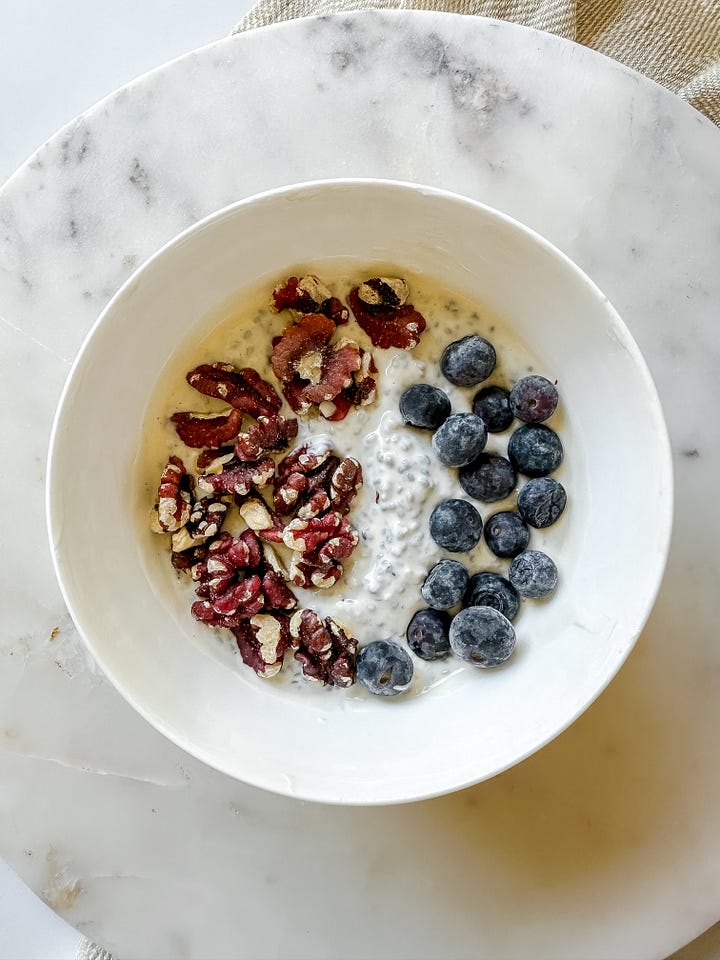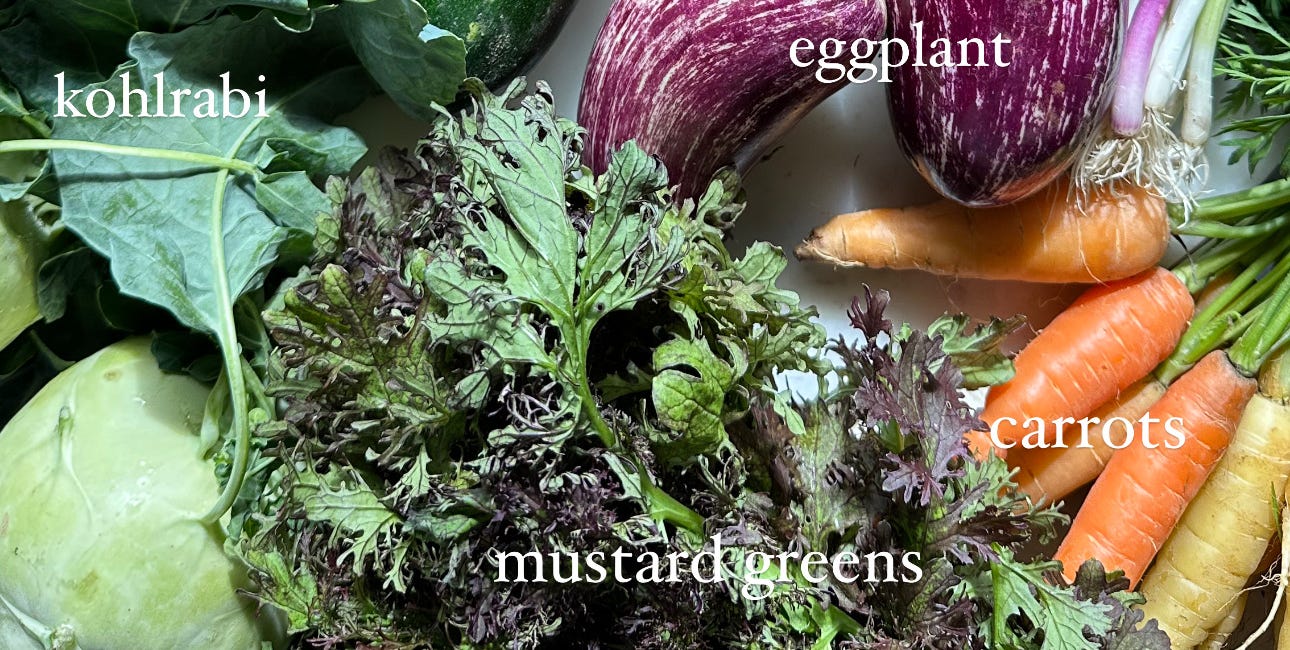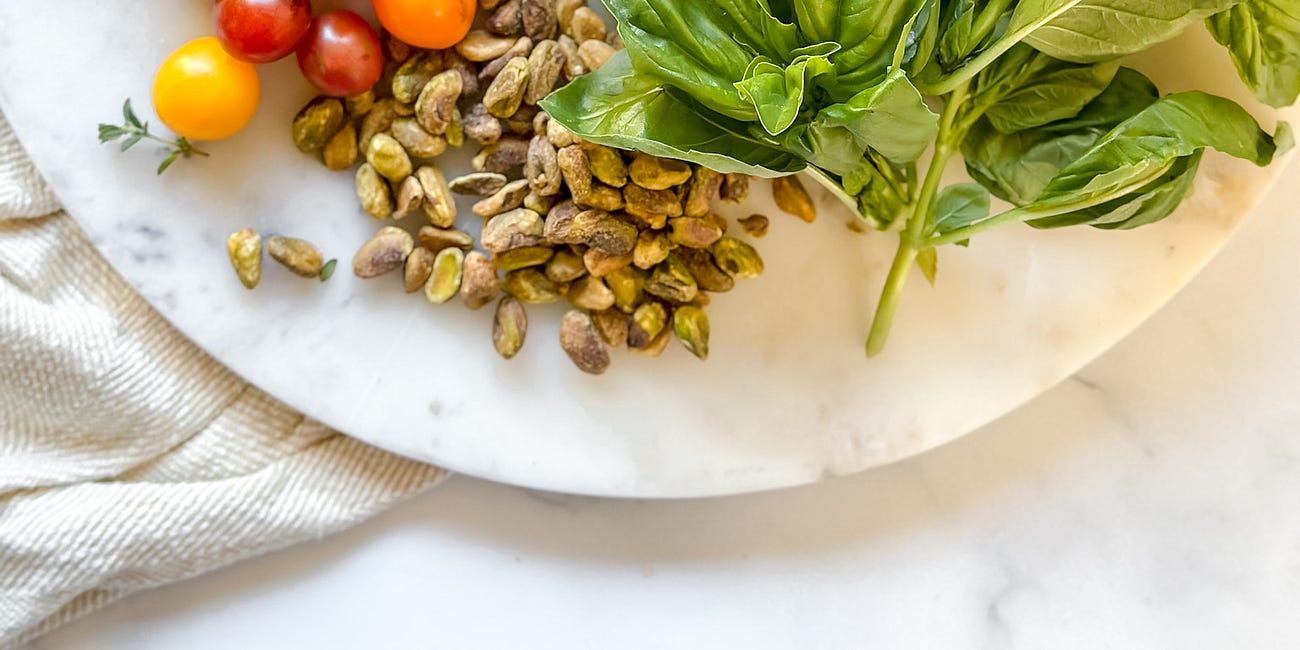does saturated fat really cause heart disease? what science says about cholesterol
sugar, not saturated fat, might be the real culprit behind heart disease
Reviewed by Michael T. Bollinger, MD
Most of you know that I personally eat a diet that prioritizes healthy fat, moderate amounts of protein, lots of plants and fiber, and fermented foods. Most people would call this an LCHF (low-carb, high-fat) diet, a Mediterranean-style diet, or even clean keto. I do not like to label diets, and I never count calories, so I just say that I eat for optimal metabolic health and healthy aging.
My lipids, glucose, and nutrient labs are all within healthy ranges. I am 58 years old and take no medications other than hormone replacement. Dr. B and I use Function Health and do a complete set of labs twice a year just to be sure that what we are doing is working for our bodies. I also have a cardiac calcium score of zero. We are all unique, and ultimately, it is testing, not guessing, that serves our bodies the best.
I have gotten many questions recently about reducing cholesterol. There is much debate on the actual need to reduce cholesterol as it relates to optimal health. This is a point that Cardiologist Dr. Aseem Malhotra makes in his book A Statin-Free Life: A revolutionary life plan for tackling heart disease – without the use of statins. Dr. Malhotra maintains that it is sugar, refined carbs, stress, and smoking, more than anything else, that actually cause heart disease.
Let's Talk About Saturated Fat, Cholesterol, and Your Heart
As a nutritionist passionate about metabolic health, I've spent years diving deep into the research on fats, cholesterol, and heart health. What I've discovered might surprise you - the story is way more nuanced than we've been told. Let me break it down in a way that actually makes sense.
Let’s start with this quote from the Journal of the American College of Cardiology:
“The recommendation to limit dietary saturated fatty acid (SFA) intake has persisted despite mounting evidence to the contrary. Most recent meta-analyses of randomized trials and observational studies found no beneficial effects of reducing SFA intake on cardiovascular disease (CVD) and total mortality, and instead found protective effects against stroke. Although SFAs increase low-density lipoprotein (LDL) cholesterol, in most individuals, this is not due to increasing levels of small, dense LDL particles, but rather larger LDL particles, which are much less strongly related to CVD risk. It is also apparent that the health effects of foods cannot be predicted by their content in any nutrient group without considering the overall macronutrient distribution. Whole-fat dairy, unprocessed meat, and dark chocolate are SFA-rich foods with a complex matrix that are not associated with increased risk of CVD. The totality of available evidence does not support further limiting the intake of such foods.”
The take-home message: reducing saturated fat in your diet does not appear to reduce your risk of cardiovascular disease and overall mortality.
The Big Picture: What You Need to Know
For decades, we've been told to fear saturated fat and cholesterol. But here's what the latest research actually shows:
Not all saturated fats affect your body the same way (just like not all carbs are equal!)
Sugar and refined carbs are likely bigger heart health villains than saturated fat
The quality and source of your food matter more than avoiding specific nutrients
Your overall eating pattern has a bigger impact than any single food choice.
What works for one person might not work for another - we're all unique! Back to my test, don’t guess philosophy.
Let's Bust Some Common Myths
Myth #1: "All Saturated Fat Is Bad for Your Heart"
Here's something that might blow your mind: the research tells a completely different story than what we've been taught. A 2017 study showed that most major heart attacks actually happen in people with normal cholesterol levels. Even more surprising? A national study from 2009 found that about 75% of heart attack patients had LDL cholesterol within the recommended ranges.
The reality is that heart disease is complex. While some saturated fats can raise cholesterol, others don't have much impact at all. What matters most is the source of those fats and what you're eating them with.
Myth #2: "Eating Cholesterol Raises Your Cholesterol"
Remember when everyone was terrified of eggs? Science has come a long way since then! Research now shows that eating 1-2 eggs daily doesn't raise cholesterol for most people. In fact, eggs are one of the most nutrient-dense foods you can eat.
Want to know what actually raises cholesterol? It's processed foods, refined carbs, and added sugars. These foods signal your liver to produce more cholesterol - way more than what you'd get from eating whole foods that contain cholesterol.
In fact, 80% of all cholesterol is produced by our own bodies in our liver and intestines and only 20% comes from the food we eat. We need cholesterol to make vitamin D, estrogen, testosterone, and bile acids.
Myth #3: "All LDL Cholesterol Is Bad"
This is where it gets really interesting. LDL cholesterol isn't just one thing - it comes in different sizes, like different-sized boats floating through your bloodstream. The small, dense particles are the troublemakers that can slip into your artery walls and cause inflammation. The large, fluffy ones? Much less concerning.
Here's the kicker: what increases those harmful small, dense particles? It's not saturated fat - it's sugar and refined carbs! This is why looking at total cholesterol or even total LDL doesn't tell the whole story.
About Those Saturated Fats
Now that we've covered the practical stuff, let's talk about saturated fats in general. Think of these as stable fats - they're solid at room temperature. And no, saturated fat does not “block your arteries,” as we have all heard. But not all saturated fats are created equal:
Good sources:
Fermented dairy (yogurt, kefir, cheese) - packed with probiotics and nutrients
Grass-fed meats - higher in omega-3s and other nutrients
Coconut oil (in moderation) - contains beneficial medium-chain triglycerides
Dark chocolate - rich in antioxidants
Less optimal sources:
Processed meats - often loaded with sodium, nitrates, nitrites, and preservatives. We do occasionally consume bacon, prosciutto, and cured meats, but make sure they are artisanally made without sugar, nitrites, and nitrates
Conventional red meat (CAFO) - higher in inflammatory compounds
Refined baked goods - a combination of refined sugar and refined flour. Examples include packaged, store-bought cookies, Costco muffins, Starbucks bakery items, white bread, donuts, and pop-tarts
Deep-fried foods - oxidized fats combined with refined carbs
Processed dairy- creamers, flavored yogurt, flavored milk, processed cheese, shelf-stable or long-lasting dairy like Fairlife, low-fat or fat-free dairy products with additives to replace fat, ice cream, and frozen dairy desserts
Monounsaturated Fats
These are your heart's best friends! Found in:
Extra virgin olive oil
Avocados
Nuts (especially macadamia nuts and almonds)
Olives
Seeds (especially pumpkin and sesame seeds)
Polyunsaturated Fats
We need both omega-3s and omega-6s, but balance is key:
Beneficial omega-3 sources:
Wild-caught fatty fish (salmon, sardines, mackerel)
Ground flaxseeds
Chia seeds and basil seeds
Walnuts
Processed foods made with these oils
Choosing Heart-Healthy Oils
Extra virgin olive oil is particularly beneficial, with extensive research supporting its positive effects on heart health. It is the perfect kitchen staple for salad dressings, cooking, and finishing dishes. Despite common misconceptions, extra virgin olive oil maintains stability at higher cooking temperatures.
What Actually Impacts Heart Health?
Based on the latest research, here are the factors that I think matter the most:
1. Inflammation
Chronic inflammation is a major driver of heart disease. What causes it?
Processed foods
Lack of sleep
Chronic stress
Environmental toxins
Lack of exercise and a sedentary lifestyle
Smoking
Nutrient deficiencies
2. Blood Sugar Balance
Unstable blood sugar can:
Increase small, dense LDL particles
Promote inflammation
Damage blood vessels
Lead to insulin resistance
3. Nutrient Status
Key nutrients for heart health:
Magnesium
Omega-3 fatty acids
Vitamin D + K2
CoQ10
Activated B vitamins

My Simple Strategy for Optimal Heart Health
Instead of obsessing over fats, here's what I teach my clients:
1. Focus on Real, Whole Foods
Shop the perimeter of the grocery store
Choose foods with ingredients you recognize
Prep meals at home whenever possible
2. Build a Healthy Plate
For each meal, aim for:
2-3 cups of colorful vegetables (half your plate)
A palm-sized portion of quality protein (1/4 of your plate)
1-2 thumb-sized portions of healthy fats (1-2 tbsp)
Optional: 1/4-1 cup of complex carbs, depending on your needs
3. Include These Daily
6-8 servings of vegetables
2-3 servings of Omega-3-rich foods
30-40g of fiber, including ground flax and psyllium husk
Plenty of herbs and spices
Fermented foods (aim for 1-2 servings daily)
Speaking of fermented foods, let me share why they're so crucial for heart and metabolic health. When you regularly eat fermented foods like kimchi, sauerkraut, kefir, or yogurt, you're not just getting probiotics - you're supporting your entire metabolic system. These foods help:
Reduce inflammation throughout your body
Support healthy cholesterol levels
Improve nutrient absorption
Strengthen your gut barrier
Balance your immune system
I always tell my clients to think of fermented foods as your gut's best friends. They're particularly powerful when combined with fiber-rich foods, as the fiber acts as a prebiotic, feeding those beneficial bacteria. Try adding a spoonful of sauerkraut to your salads, enjoying kefir in your smoothies, or using kimchi to spice up your eggs. Your gut and heart will thank you!

4. Minimize These
Added sugars (the real troublemaker for heart health)
Refined carbohydrates
Industrial seed oils or factory-made fat
5. Important Considerations
Strength training 2-3 times a week to increase and maintain muscle mass
Daily movement like walking- aim for 8-10,000 steps daily
Exercise that increases heart rate (cardio) at least 30-45 minutes 3 times a week: swimming, pickleball, running, hiking, trucking, or walking with a weighted vest.
Important Research Highlights
The science backing this approach is solid:
People eating 25% or more of their daily calories from added sugar had almost three times the risk of death from cardiovascular disease.
Higher Omega-3 intake significantly reduces triglyceride levels.
Regular olive oil consumption is associated with a 16% lower risk of cardiovascular disease.
Fermented dairy products show neutral or beneficial effects on heart health. “In general, evidence suggests that milk has a neutral effect on cardiovascular outcomes, but fermented dairy products, such as yogurt, kefir, and cheese, may have a positive or neutral effect.”


one of my favorite breakfasts is full fat A2 or sheep yogurt from Bellwether Farms. No Oats, basil seeds, walnuts, and berries: protein, healthy fat, and loads of fiber to start my day!
Bottom Line
Heart health isn't about avoiding all saturated fat - it's about creating an anti-inflammatory eating pattern that works for your unique body. Focus on whole foods, lots of plants, quality proteins, fiber, healthy fats, and fermented foods. Remember: there's no one-size-fits-all approach. Your genetics, microbiome, and lifestyle all play a role in how your body responds to different foods.
Ready to optimize your heart health? Start by crowding out processed foods with colorful vegetables, adding Omega-3-rich foods, increasing your daily fiber intake, and choosing quality over quantity when it comes to fats. Keep it simple, sustainable, and delicious. Your heart (and taste buds) will thank you!
1// Extra Virgin Olive Oil: my favorite heart-healthy extra virgin olive oil comes from a farm on a hill not far from my house. Goldridge Farms is offering you 20% off their beautiful, delicious, heart-healthy extra virgin olive oils. Use code NEST20
2// Function Health Labs: this is the company Dr. B, and I use for our twice-yearly labs to keep tabs on our own health.
3// Balance fully methylated and active form B Vitamins by Healthy Elephants- this is the functional medicine doctor-formulated, bio-available B vitamin that I take every morning. use code NEST10 to save
4// Fullscript Supplements, always 20% off. Once you make an account, you can access practitioner-grade supplements at a terrific discount. These are the magnesium, Omega-3, vitamin D + K2, and CoQ10 supplements that I take and recommend.
5// Fiber is your heart and your gut’s best friend. Some of my favorite sources of fiber are: No Oats, basil seeds, lupin pasta, ground flax, breakfast cookies, and psyllium husk flakes. If you missed my fiber post, find it here!
In case you missed these gems:
Healthy Pantry Reset 2025: A Complete Guide to Removing Processed Foods
I have spent the past week with my husband’s family in a Lake Tahoe rental house for skiing, games, and togetherness. We gather the week after Christmas each year and ring in the New Year. My husband’s family eats the standard American diet (SAD) as we did until about 14 years ago. I did much of the shopp…
Part 1: Real Food Made Simple
Learning to choose foods that nourish, protect, and energize our bodies
Part 2: a Healthy Eating Blueprint
Once you have made the decision to change the way you eat and are motivated to change your own health outcomes, that is the biggest hurdle. If you are ready…
Part 3: Healthy Pantry Staples I have on auto-ship
Building a Foundation for Metabolic Health, Blood Sugar Balance, and Healthy Aging takes intention and planning. If you haven’t seen them yet, check out Parts 1 and 2 of my Real Food Made Simple series:Nest Wellness by Beth Bollinger is a reader-supported publication. To receive new posts and support my work, consider becoming a free or paid subscriber.
Thank you🧡
This newsletter wouldn’t be possible without YOU! A huge THANK YOU to all who support my work here on Substack.
🧡P.S.
If you know someone with pre-diabetes, diabetes, metabolic syndrome, or anyone eating for blood sugar balance and a healthy heart, or just eating whole food for better health, will you forward my Substack to them?
🧡Beth













Beth, thank you for this! Such a good read!! Few questions - 1. how do I find unprocessed cheese? We buy blocks or slices of cheddar cheese for example. 2. Would you consider a homemade muffin to be a refined baked good? 3) by adding maple syrup to a muffin, would that be considered "added sugar"? Thanks again!
Thank you for this thorough and thoughtful information. It paints a much clearer picture regarding cholesterol and heart health,and helps me understand it much better. So helpful!